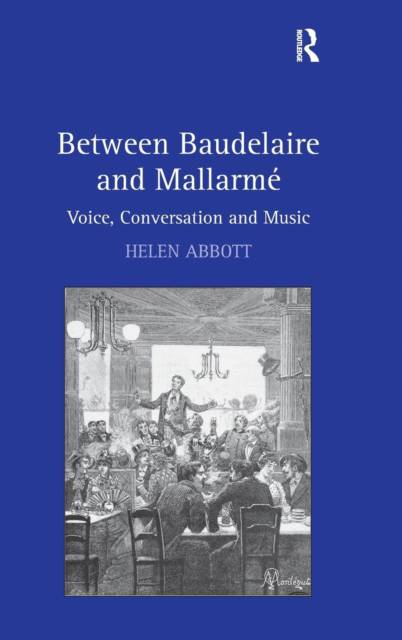
- Retrait gratuit dans votre magasin Club
- 7.000.000 titres dans notre catalogue
- Payer en toute sécurité
- Toujours un magasin près de chez vous
- Retrait gratuit dans votre magasin Club
- 7.000.000 titres dans notre catalogue
- Payer en toute sécurité
- Toujours un magasin près de chez vous
202,95 €
+ 405 points
Description
As the status of poetry became less and less certain over the course of the nineteenth century, poets such as Baudelaire and Mallarmé began to explore ways to ensure that poetry would not be overtaken by music in the hierarchy of the arts. Helen Abbott examines the verse and prose poetry of these two important poets, together with their critical writings, to address how their attitudes towards the performance practice of poetry influenced the future of both poetry and music. Central to her analysis is the issue of 'voice', a term that remains elusive in spite of its broad application. Acknowledging that voice can be physical, textual and symbolic, Abbott explores the meaning of voice in terms of four categories: (1) rhetoric, specifically the rules governing the deployment of voice in poetry; (2) the human body and its effect on how voice is used in poetry; (3) exchange, that is, the way voices either interact or fail to interact; and (4) music, specifically the question of whether poetry should be sung. Abbott shows how Baudelaire and Mallarmé exploit the complexity and instability of the notion of voice to propose a new aesthetic that situates poetry between conversation and music. Voice thus becomes an important process of interaction and exchange rather than something stable or static; the implications of this for Baudelaire and Mallarmé are profoundly significant, since it maps out the possible future of poetry.
Spécifications
Parties prenantes
- Auteur(s) :
- Editeur:
Contenu
- Nombre de pages :
- 258
- Langue:
- Anglais
Caractéristiques
- EAN:
- 9780754667452
- Date de parution :
- 28-09-09
- Format:
- Livre relié
- Format numérique:
- Genaaid
- Dimensions :
- 156 mm x 234 mm
- Poids :
- 539 g







